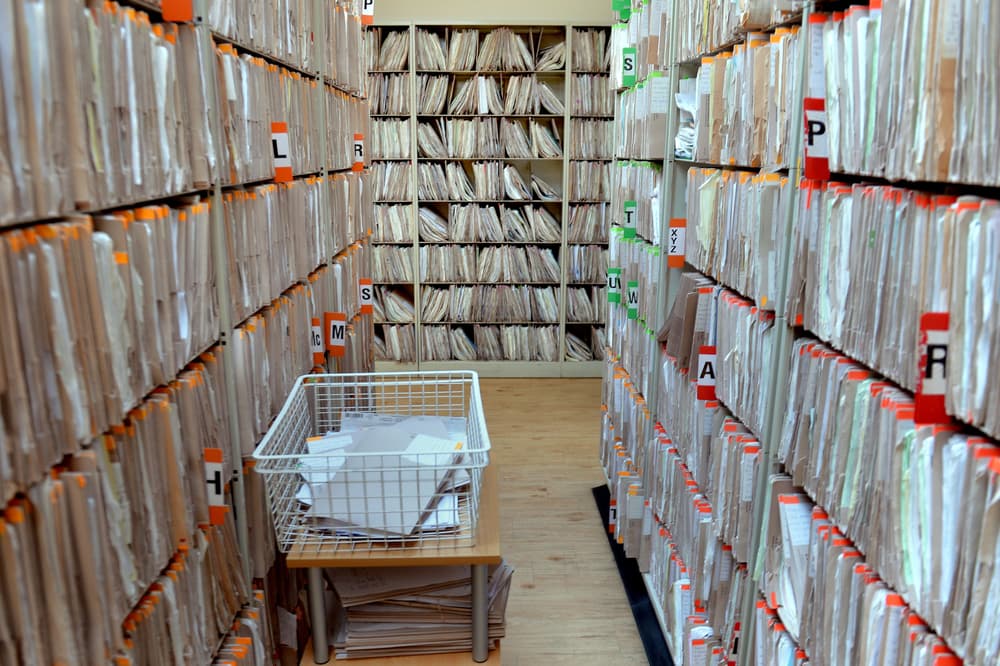
Digitising NHS and social care will cost £21 billion over the next five years, but could be vital for driving down waiting lists, according to new research.
A report said the UK will need to spend billions to fully implement electronic patient records, cloud storage, cyber security and wi-fi, with the skills and capabilities needed to use them.
The Health Foundation charity commissioned PA Consulting ahead of the forthcoming Government spending review, and publication of the 10-year health plan, to estimate the costs of making the transformation to digital services.
The Government has pledged to move the health service from analogue to digital as part of its “three shifts” for the NHS, which also include moving care from hospitals to communities and preventing sickness.
In the new report, estimates suggest that £8 billion of capital spending (of which £5 billion is for England) is needed for things like hardware, software and electronic patient records.
A further £3 billion would be one-off revenue spending (of which £2.25 billion is for England), for planning, initial education and training, implementation of new technologies and transition from old systems.
Some £2 billion recurring annual spending (of which £1.5 billion per year is for England) over five years is also needed for ongoing training, software subscriptions, maintenance, improvement and optimisation. Recurring costs will then carry on beyond the five-year period.
According to the Health Foundation, while it may be possible to cover some of the costs from existing budgets, it is highly likely the Government will need to commit additional funding.
Tom Hardie, senior improvement fellow at the Health Foundation, said: “Digitisation is going to be really critical for the NHS and social care to be sustainable and fit for the 21st century.
“When we talk about waiting times in particular, I think there are hopes that digitisation could help to address waiting times.
Read More
“Within this research, we haven’t set out to define or quantify the benefits of digitisation, but I think it’s possible to say that digitisation could theoretically help to reduce waiting times.
“So, for example, making it easier and simpler for people to get appointments or to cancel and rebook appointments.
“It could help to optimise (operating) theatre schedules, improve prevention of acute episodes of care through remote monitoring of people with health conditions, improved triage processes to help direct people to the right services first time (and) perhaps avoiding more resource-intensive services like A&E.”
Making the NHS more digitally capable will also free up staff time, he said.
Figures suggest that medics lose more than 13.5 million hours a year because of inadequate or malfunctioning IT.
Dr Malte Gerhold, director of innovation and improvement at the Health Foundation, said: “Our independently commissioned research finds that to achieve the Government’s ambitions to digitise health and social care, significant spending will be needed over the next five years and beyond.
“But direct investment in technology alone is not sufficient.
“The Government must fund the change not just the tech. This means investing in and planning for implementation and change to genuinely realise the benefits of digitisation for patients and staff.”
A Department of Health and Social Care spokeswoman said the private sector is 15 years ahead of the NHS on technology, adding: “This Government is bringing our analogue NHS into the digital age, to improve the productivity of the NHS, deliver better care for patients and better value for taxpayers.
“We are already making significant progress by introducing cutting-edge AI and technology to support clinicians and improve care, reforming the NHS app to give patients more control, and centralising patient records to speed up diagnosis and treatment.
“This is only possible because of the increase in employers’ national insurance, which allowed us to invest an extra £26 billion for health and social care.”



